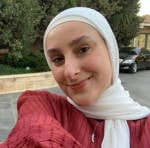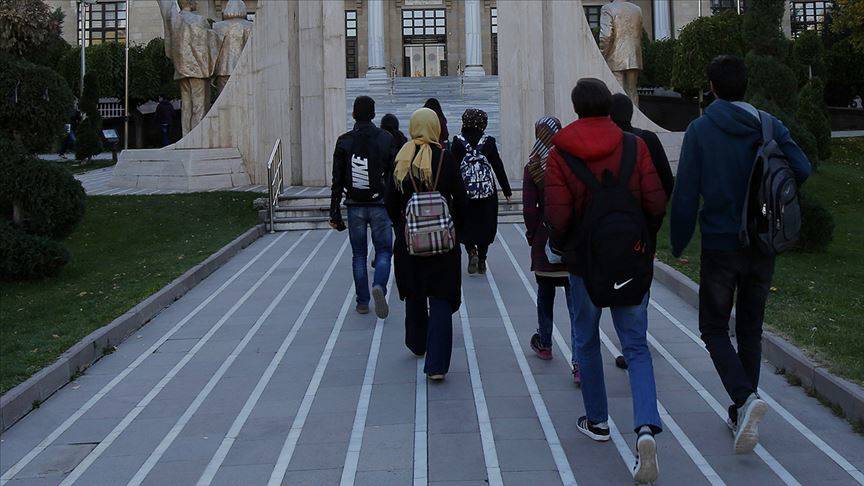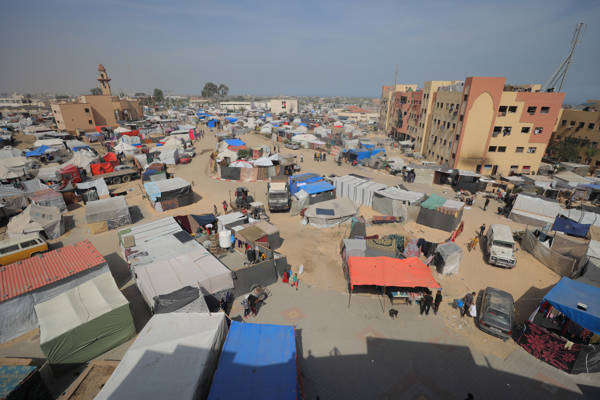Turkey has become increasingly popular among international students in recent years, primarily due to its affordable education costs. Currently, over 300,000 foreign students are studying at universities across Turkey, according to the country’s Council of Higher Education (YÖK).
Turkey is particularly popular among Middle Eastern students, according to records from one private İstanbul university. This school year, Bilgi University has mostly registered students from Palestine, Iran, Libya, Egypt, Pakistan, Syria, and Jordan.
Lower tuition fees compared to European universities and religious considerations may contribute to the decisions of students from these countries, according to Alper Ateşok, the university’s international admissions team leader. Ateşok also acknowledges that Turkey “has gained a lot of attention” among international students recently.
Tima Shabib, 23, from Syria, is one such student at Bilgi University. She says she could afford four years of higher education in Turkey with the same amount of money that would only cover one year in Saudi Arabia. “I worked for four years to save up for university,” she says, adding that Turkey was the most affordable option.
However, the significant increase in student numbers presents various challenges for international students, both in their academic lives and outside the university.
For example, Tima, who heads the sociology club, notes that only a few student clubs are “international,” making it challenging to collaborate with other clubs due to language barriers. Additionally, she mentions that some professors might choose to conduct classes in Turkish if only a few students do not understand the language.
Sara, who studies in Turkish and is the only international student in her class, says she has encountered xenophobia towards Syrians. One professor would often make derogatory comments about Syrians in front of her and then say, "But not you, Sara. You don’t look like them.”
Syrians make up about one fifth of all foreign university students in Turkey, according to YÖK figures.
The paperwork sector
Issues like residency permits and other paperwork can also pose significant challenges for foreign students. In İstanbul alone, there are dozens of “educational agencies” that handle students’ paperwork with state institutions and schools, aiming to navigate the bureaucratic complexities on behalf of the students.
However, poor-quality service from these firms and the behavior of civil servants often further complicate problems, according to students.
This year, when Tima needed to renew her residency permit, she was shocked to find her application rejected due to an alleged fake water bill. Despite obtaining an original bill from the water company, the immigration office dismissed her evidence and refused to provide a translator. They even threatened her with arrest for forgery of documents, she claims. Although she resubmitted the required documents, Tima has yet to receive a response. "They made me feel like a criminal. I have never felt more anxious in my life," she adds.
Sara Manafikhi, 21, a Syrian student at Bahçeşehir University, says she completed her registration with an educational consulting company, but, when she came to İstanbul she was told that a stamp was missing. She had to go back to Egypt to get her papers stamped again and fix the missing documents.
The same issue was faced by another student, Karmil Maqadma, a student at İstanbul Sabahattin Zaim University, and she couldn’t attend her classes for a month due to the negligence of the educational agency.
“It’s an industry,” says Sara. “They get a commission from each university student they register, but they don’t care after the registration process.”
In June, Sara encountered problems at the Migration Management office when she was unexpectedly informed that her residence permit had been canceled because her university reported she hadn't attended her classes. Denying the claim, Sara stated, "I have never missed a class."
She visited her university the next day for clarification but received no resolution. “I found myself having to avoid the police so they wouldn't think I'm here illegally,” she recounted. (LD/AQ/VK)









